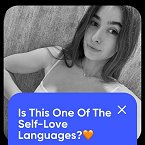For most of my life, I was a people-pleaser. I said “yes” out of habit—to invitations I didn’t want, extra work I couldn’t handle, even small requests that quietly drained my energy. I thought that saying “yes” was kindness, but, in reality, it left me exhausted and often resentful. My boundaries blurred until I barely recognized where my own needs ended and others’ began.
Everything shifted when I realized that “no” isn’t rejection—it’s self-respect. The first time I politely declined an invitation, I felt a pang of guilt, like I was disappointing someone or missing out. But afterwards, a wave of relief washed over me. I had honored my own limits. I had time for what truly mattered to me, and for the first time, my “yes” felt real, not forced.
Learning to say “no” is a process. I started small: “Thank you, but I can’t today.” Or “I wish I could help, but I need to focus on myself right now.” Gradually, my confidence grew. I noticed that true friends respected my honesty, and the relationships that faded away were ones that thrived on my constant availability, not on mutual care.
Now, “no” is my favorite word. It’s not harsh or selfish—it’s honest, clear, and even loving. It allows me to say “yes” to the things and people that genuinely light me up. If you struggle with guilt, remember: your needs are important. You are allowed to choose yourself.
Setting boundaries is a form of self-love, and it opens space for deeper connections, authentic joy, and a life that feels truly yours. Try it—your future self will thank you.
Quick Search

Prices & Services
Letters from 2$
Fast Gift Delivery
2-way Video Chat
5 Membership Levels
View all rates
